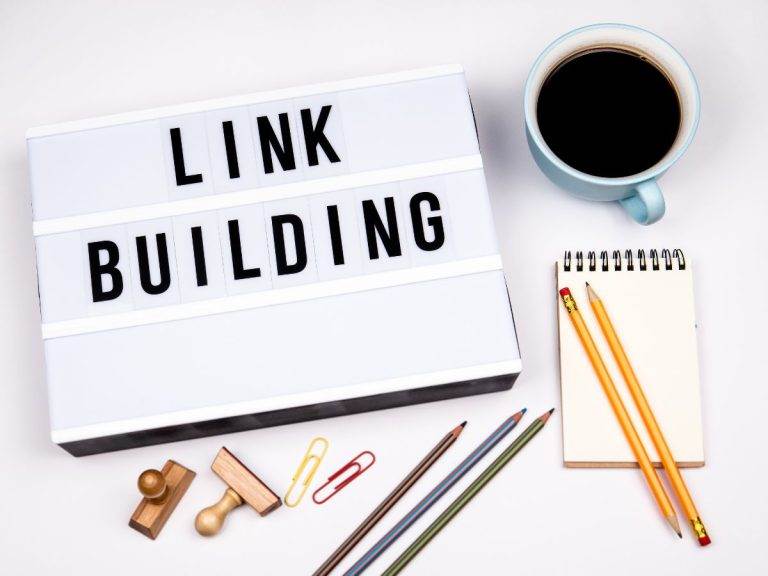The complete guide to SEO for beginners
You might have heard the word SEO a lot but never really understood the actual meaning of it. Many people don’t know how to make use of SEO the right way. The truth is SEO is not as difficult as it sounds. With little information and tips about SEO, you can easily comprehend the process of SEO in just a few minutes.
We are here to give you a Google SEO starter guide to help you understand and use SEO.
What is SEO?
To understand how SEO works, you need to know what SEO is. SEO or Search Engine Optimization is a process (technical, creative, or analytical) to improve a website’s visibility in search engines. SEO is beneficial for optimizing the quality and volume of website traffic from search engines.
It also helps to design and develop a Search Engine Friendly site. SEO help to know what your target audience might search for and how search algorithms work.
How does SEO work?
The purpose of SEO is to help people who are searching for you to find you. You have to create the content on your website that people are trying to explore. To make SEO work correctly, you must ensure that your goals match your website visitors’ goals.
Determine your goals and optimize for keywords that attract visitors who most likely want the same thing.
How to find the right keywords?
There are many tools to help you to find the right keywords. The most popular is Google’s Search-Based Keyword Tool. It provides the keywords based on actual Google searches. In addition, you will get a list of keyword ideas customized to your website on the account if you are signed into an AdWords account.
Keywords should have a high search volume. It should be relevant to your content. Ensure your keywords have low competition, which means a smaller number of higher chances of ranking. Low competition means low traffic.
These low-traffic keywords can collectively send you more visitors rather than a few high-traffic keywords. These keywords make up 80% of your traffic. When researching keywords, incorporate higher-traffic and lower-traffic keywords into your overall strategy.
Crafting your content
After choosing the keywords for your website, you should start crafting your content.
Search engines can automatically crawl into your website and read it to find out the contents and decide which keywords your every page should rant for with Bot’s help. If you create content, bots cannot read; they interpret texts. They cannot watch videos, look at pictures, or listen to audio, so you must describe each so the bot can understand and rank your pages for the appropriate keywords.
Focus on people first because they are your visitors, and also, usually, writing only for search engines makes your content dull. Make your content accessible, then optimize for search engine bots.
Pay most of your attention to the following things:
- Title: Your title should be eye-catching, which can raise the reader’s interest.
- Keywords: Pick keywords that are relevant to your site.
- Links: Make sure to link to other quality sites that complement your site. This way, other sites will link back to you as well.
- Quality: You should always try to publish quality content. It grabs visitors’ attention and encourages them to return to your website.
- Freshness: Publish content regularly. Your content should not be outdated. If you are too busy to add content, consider adding a question-and-answer section or blog on your website.
- Original: make sure your posts are original and unique. It should not be anyone else’s content. Search engines can penalize you if you do such an act.
Optimizing your code
Search engine bots read your website’s code. As a result, there are eight sections of code that you need to optimize. These eight parts of the codes are:
1. Title Tags
The title tags enclose the title of your website. Keeping keywords in the title would be best when coding your title tags. In addition, each page should contain unique title tags to maximize the search engine results further.
2. Meta Tags
Meta Tags do not impact search engine ranking much though it tells the visitors about your site. It is essential because it significantly affects whether the visitors click through. Make sure your meta tag description contains keywords in the description. Use different, short, and complete sentences in your meta description.
3. Headings
The heading comes in a specific order, H1, H2, H3, H4, H5, etc. H1 is the starting page and is the main heading. The remaining other heading codes descend to lower-level headers on the website. Each page should have only one H1 tag and can have as many h2s, h3s, h4s, and h5s as needed. Your headings should be relevant to the content and also should contain keywords in them.
4. Sitemaps
Sitemaps work as a roadmap for search engines because they provide directions to different pages on your site. It makes sure they find everything. HTML and XML sitemaps are two types of sitemaps you can create. XML sitemaps are coded, especially for search engines to read. HTML sitemaps are very easy for visitors to read, as well. You can provide visitors with an overview of everywhere they go on the site by linking them. If you have less than a few hundred pages, place a link to each page in an HTML sitemap. Link to most essential pages if your site has a few thousand pages or more.
XML sitemaps contain every page of your site, no matter how many pages your website has. You can use XML Sitemap Creator to create a sitemap automatically. Please submit it to Google Webmaster Central and Bing once your XML sitemap is created. The major search engines can index and crawl your site.
5. Domain name
It is found that domain name that contains keywords within them ranks higher than those without keywords. The same domain names rank even more top but are not unique. Using an exact match domain name is right if your traffic comes only from search engines. Use a unique domain name if SEO is a minor part of your strategy.
6. URL Structure
Do not make our URLs messy. It leads to search engines having a hard time crawling them and not being able to index your site. It is a disadvantage because your site will not rank in the search engines. Make your URLs search engine-friendly. Always use shorter URLs. It should not contain extraneous characters ($ @ % ? = *). Search engines prefer dashes, so do not use underscores. You should only use numbers and letters in URLs. Do not use subdirectories because subdomains rank best.
7. Site Structure
It makes a significant impact on your rankings by the way you link to web pages together. The links within your content carry more weight than links within a sidebar or footer. Always keep the number of links on each page under 100. It would be best if you did not cross-link irrelevant links.
8. Alt tags
Search engines cannot index images, so alt tags need to be added to each photo, adding a description. Your image names should be relevant.
Links
Links are essential to SEO because your web pages will rank higher if more websites link to your website. Unfortunately, it is not easy to convince hundreds and thousands of sites to link to you. So, a link has a high value in SEO. In addition, the more trustworthy sites link to you, the more authority you have on the topic.
Links within the content are helpful. Do not link irrelevant or spammy sites. Anchor text plays an essential role in link building. You need the link’s anchor text to be “blue widget” if you want to rank for “blue widget.” The richer the anchor text, the more it will hurt your website.
Be aware of buying links. If you get caught, then you can get banned from search engines.
You can increase your link count through social media. You can also use directories. Submit your website to the ones that complement your content. To rank for a specific keyword, get the best links from sites in the top 100. Most of them might be your competitors, but send them a friendly email asking to link to you. Unfortunately, many links are online, so there are high chances of dead links over time. Email those websites notifying them of deadlinks and convince them to replace the deadlink with yours.
Implement this Google SEO starter guide, and your traffic from search engines will increase. Take time and figure out what works best for your website. Never use any shortcuts to speed things up. You will eventually get caught and punished for it.
Always figure out what people are searching for and create a website that provides them. Then, optimize for search engines so that they will help visitors to find you. This Google SEO starter guide is here to help you to understand SEO.






